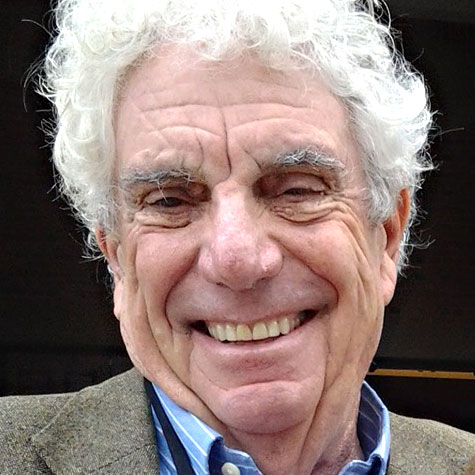In 1947, Stanley Mosk, then a Los Angeles County Superior Court judge, was confronted with a case that divided the city. Three African American families had moved into the all-white Mid-Wilshire district, and the neighbors were trying to run them out, invoking restrictive covenants banning blacks from the area.
Throwing out their case and deciding in favor of the African American families, Mosk wrote: “Our nation has just fought against the Nazi race superiority doctrine. One of these defendants was in that war and is a Purple Heart veteran. This court would indeed be callous if it were to permit him to be ousted from his own home by using ‘race’ as a measure of his worth as a citizen and a neighbor.” Mosk ruled that the restrictive covenants were unenforceable.
It was a courageous decision by a Jewish judge whose own people were barred from some Los Angeles neighborhoods by restrictive covenants — as were Asians and Latinos. The decision earned Mosk a place among California’s civil rights heroes.
From that seat, he moved up to become state attorney general and then a justice of California’s State Supreme Court. Mosk died in 2001 at the age of 88. Now Los Angeles school board member Steve Zimmer, who is Jewish, along with Mosk’s son, Justice Richard Mosk of the California Courts of Appeal, Second District, are leading an effort to have a new school named for Stanley Mosk.
“Justice [Stanley] Mosk is an absolutely critical historical figure in the legal community [of] our city and community,” Zimmer told me. “Particularly, in restrictive covenants, he changed civil rights history in our city.” Noting there’s already a courthouse named for Mosk, Zimmer said, “We honor jurists by naming courts after them, but we have to honor jurists who have the courage to change our lives with more than a court building. Nothing honors such a person as naming a school after him.” Unlike a courthouse, Zimmer said, “a school is a place of hope, particularly a new school.”
The Canoga Park school, scheduled to open Sept. 13, is currently known as Valley Region Elementary School No. 10. The Board of Education is expected to take action in October to officially name it Stanley Mosk Elementary School, with a naming ceremony at the campus in November, according to Sharon Delugach, Zimmer’s chief of staff.
Mosk’s career encompasses the post-World War II history of the civil rights movement in California.
Like so many Californians, he was an immigrant to the state, born in Texas and raised in Illinois, but followed his parents to Los Angeles during the depression and earned his law degree and began his solo practice as an attorney here. He was a liberal in what was then a Republican California. In 1934, he took part in a famous liberal campaign, the unsuccessful run for governor of Upton Sinclair, the socialist and writer. Sinclair lost, but four years later, Mosk worked for another candidate, Culbert Olson, who was elected governor. Mosk joined Olson’s team in Sacramento as executive secretary. Olson was defeated in 1942, but before his term ended, he appointed Mosk to the bench, making him the youngest Los Angeles Superior Court judge in history.
In 1958, Mosk was elected state attorney general by the largest electoral margin in the country of any candidate in that year’s elections. He was the first Jew elected to statewide office in California.
He expanded the attorney general’s office into new areas, most notably setting up its first civil rights and consumer fraud units. He was responsible for breaking the color line in the segregationist Professional Golfers Association (PGA) — the sport’s ruling body — which controlled who could play in the big tournaments.
When Mosk was told that Charlie Sifford, an African American, had been banned from playing in PGA tournaments, Mosk threatened to use the law to stop the golf association from operating in California.
Meanwhile, the segregated housing that Mosk had opposed as a young judge continued, despite the U.S. Supreme Court’s Shelley v. Kraemer decision banning such practices around the country.
In 1963, an African American legislator, Assemblyman William Byron Rumford, made another try at passing a state law banning housing discrimination. The real estate industry and conservative Republicans and Democrats once more opposed the measure. Mosk spoke up for the bill, telling an Assembly committee:
“Integration is a fact of the 20th century. It will come as surely as tomorrow. Our only choice is whether it will be forced upon us or attained through orderly public action. I therefore urge adoption of Assemblyman Rumford’s bill as an excellent example of orderly public action.”
In a struggle that consumed most of the legislative session, the bill passed.
Today, those momentous events are pretty much lost in the history books and in the dimming memories of the surviving participants. Naming the new school after the late Justice Mosk would be a tribute both to him and to others who fought for civil rights, particularly in the segregated Los Angeles of the post-World War II era.
In overturning the restrictive covenants that were aimed at all of Los Angeles’ minorities, Stanley Mosk stood up for everybody.
Bill Boyarsky is a columnist for The Jewish Journal, Truthdig and L.A. Observed, and the author of “Inventing L.A.: The Chandlers and Their Times” (Angel City Press).























 More news and opinions than at a Shabbat dinner, right in your inbox.
More news and opinions than at a Shabbat dinner, right in your inbox.